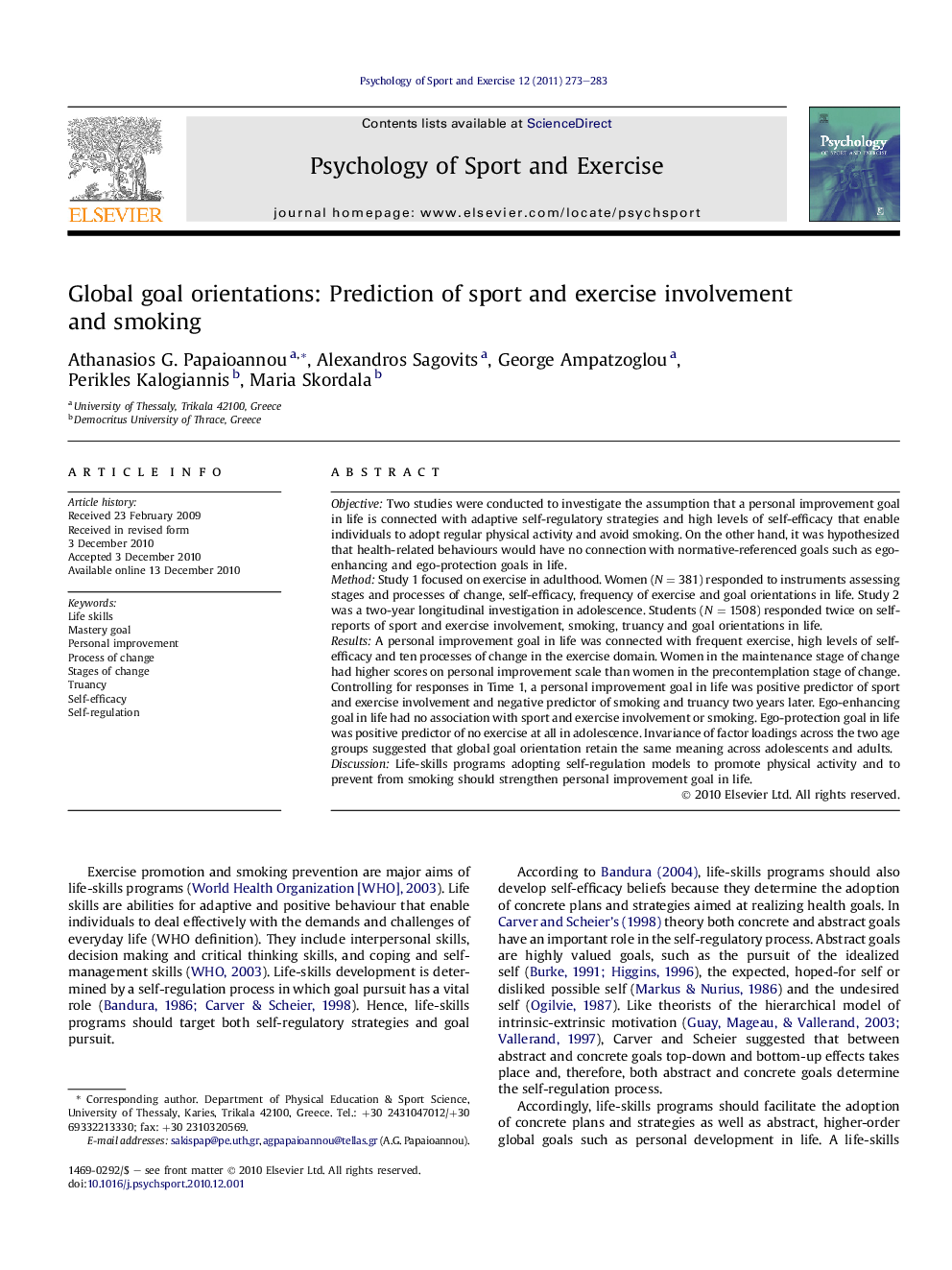| کد مقاله | کد نشریه | سال انتشار | مقاله انگلیسی | نسخه تمام متن |
|---|---|---|---|---|
| 894699 | 1472135 | 2011 | 11 صفحه PDF | دانلود رایگان |

ObjectiveTwo studies were conducted to investigate the assumption that a personal improvement goal in life is connected with adaptive self-regulatory strategies and high levels of self-efficacy that enable individuals to adopt regular physical activity and avoid smoking. On the other hand, it was hypothesized that health-related behaviours would have no connection with normative-referenced goals such as ego-enhancing and ego-protection goals in life.MethodStudy 1 focused on exercise in adulthood. Women (N = 381) responded to instruments assessing stages and processes of change, self-efficacy, frequency of exercise and goal orientations in life. Study 2 was a two-year longitudinal investigation in adolescence. Students (N = 1508) responded twice on self-reports of sport and exercise involvement, smoking, truancy and goal orientations in life.ResultsA personal improvement goal in life was connected with frequent exercise, high levels of self-efficacy and ten processes of change in the exercise domain. Women in the maintenance stage of change had higher scores on personal improvement scale than women in the precontemplation stage of change. Controlling for responses in Time 1, a personal improvement goal in life was positive predictor of sport and exercise involvement and negative predictor of smoking and truancy two years later. Ego-enhancing goal in life had no association with sport and exercise involvement or smoking. Ego-protection goal in life was positive predictor of no exercise at all in adolescence. Invariance of factor loadings across the two age groups suggested that global goal orientation retain the same meaning across adolescents and adults.DiscussionLife-skills programs adopting self-regulation models to promote physical activity and to prevent from smoking should strengthen personal improvement goal in life.
► A personal improvement goal in life was positive predictor of regular exercise.
► A personal improvement goal in life was negative predictor of smoking & truancy.
► An ego-protection goal in life was positive predictor of no exercise in adolescence.
► Life-skills programs should emphasize personal improvement goals in life.
Journal: Psychology of Sport and Exercise - Volume 12, Issue 3, June 2011, Pages 273–283